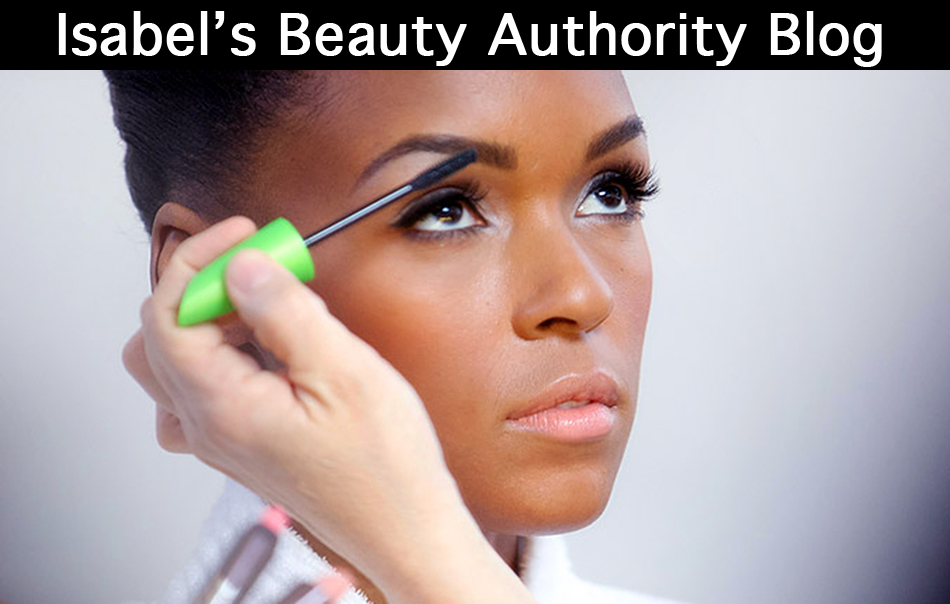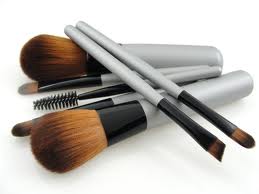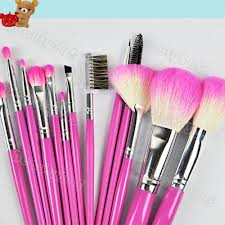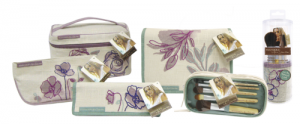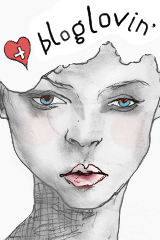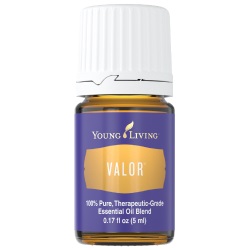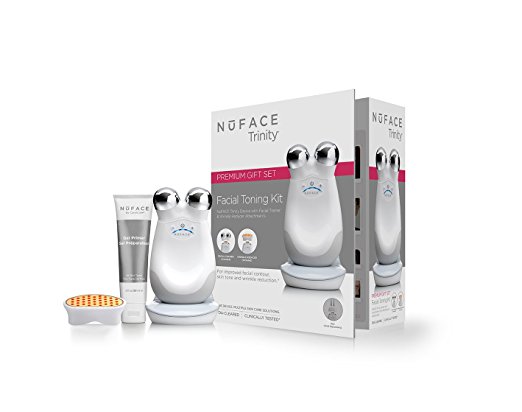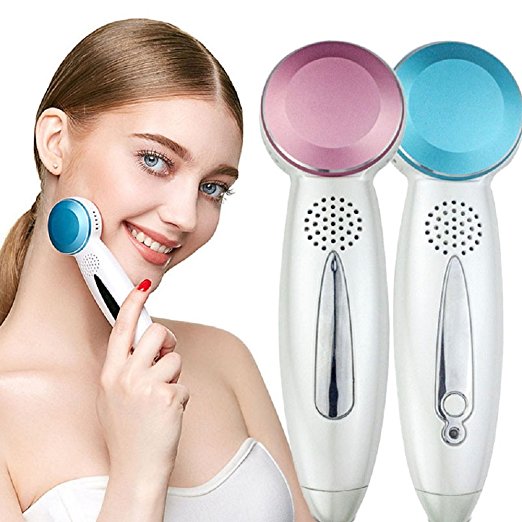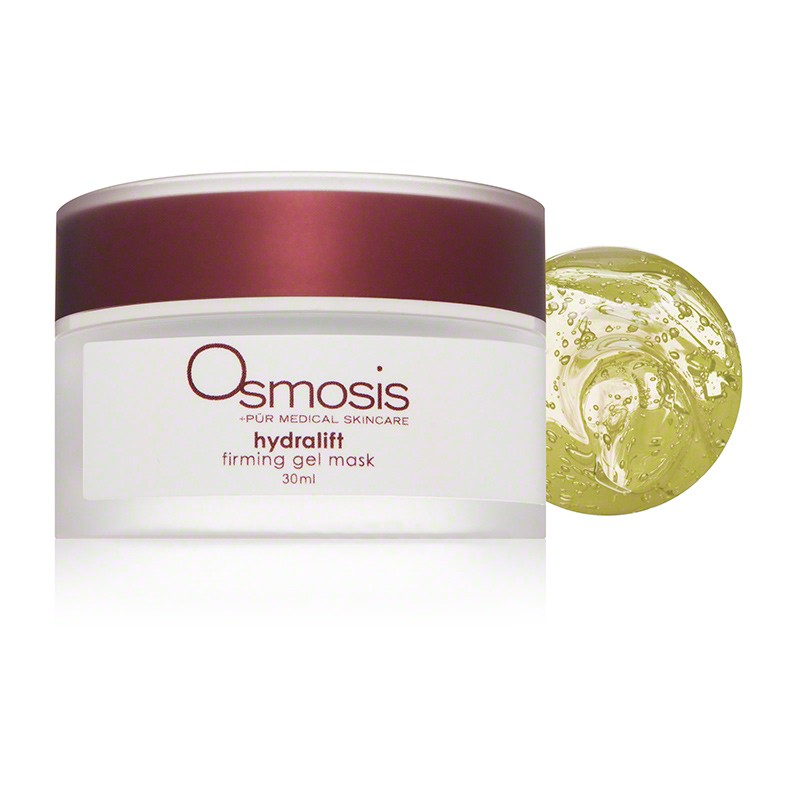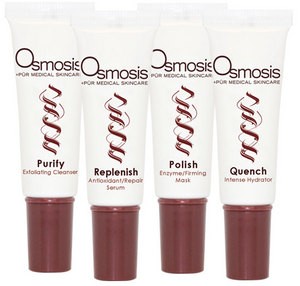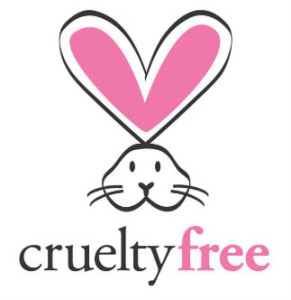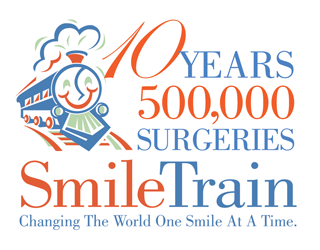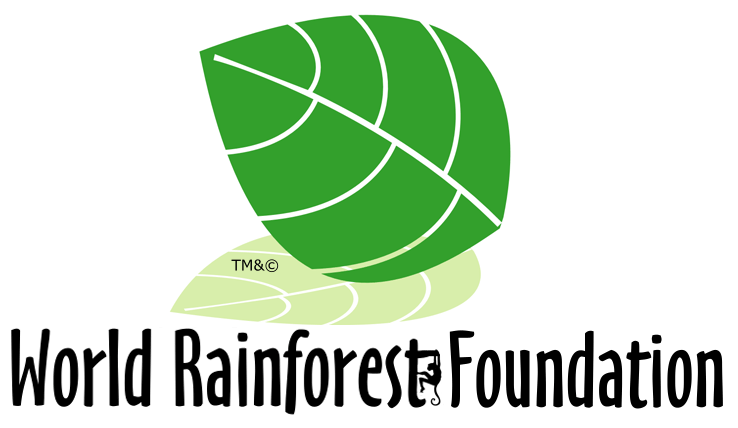Makeup brushes fall into two categories: ones made with animal hair and ones made with synthetic bristles. Today’s synthetics are actually better than animal-hair brushes, for many reasons. While the feel of a high-quality synthetic brush may be similar to an animal-hair one, there are actually many differences between the two.
- Synthetic brushes made of nylon or polyester filaments are less likely to become damaged by the makeup itself or products you might use to clean your brushes.
- Synthetic brushes are easier to keep clean because they don’t absorb the makeup pigment. This means less cleaning and wear-and-tear.
- Synthetic brushes are better for creating a soft, layered look with makeup.
- Some people are sensitive or allergic to the animal hair that some brushes are made from, including squirrel, mink, sable and horse hair. Synthetic brushes are better suited for people with those sensitivities.
- Synthetic is a great brush option for you if you are vegan or choose not to use brushes made with animal hair.
Today, there are more cosmetic companies than ever focused on quality products that are cruelty-free and eco-friendly.
Aveda offers brushes with bristles made from taklon (a non-animal fiber) and handles made of 30% natural flax fiber and 70% polypropylene (of which 90% is post-consumer recycled resin), making them not just animal-friendly, but environmentally-friendly as well.
The Body Shop, which does not test its products on animals (neither do its suppliers) or sell brushes made from animal hair, offers good-quality synthetic brushes in different shapes and sizes for different applications. Whether you’re adding a touch of pink to your lips or a soft finish to your forehead, consider the variety of its synthetic brushes available.
NVEY ECO, originally from Australia but you can order its products online, offers certified organic makeup products. Along with that the company sells makeup brushes with bristles made of synthetic fibers, not animal hair, and include the world’s first compostable makeup brush handle. None of the ingredients in the company’s products are made from ingredients derived from genetically modified crops, nor does it use mineral or petroleum oils.
Urban Decay is known for its creative and alternative colors (along with product names like Smog and Acid Rain and Oil Slick), and for its cruelty-free and certified vegan products. Check out its “Good Karma” line of brushes made from recycled plastic bottles and aluminum.
EcoTools® by Alicia Silverstone, All materials used in her EcoTools collection are earth-friendly, and include tree-free paper, a natural hemp blend, recycled plastic lining, as well as non-toxic inks. The brushes are made with recycled aluminum, bamboo, and synthetic bristles.
For more information on synthetic versus animal hair makeup brushes click here
Cleaning your brushes
I personally clean my brushes every time I use them . My clients and actors I work on have their own bags with their brushes and their make up, is a great way to avoid cross contamination and break outs . One of my mentors taught me to use 99 % alcohol for several reasons, one being that it kills bacteria in contact another is that dries very quickly so no more bacteria or fungus mold can take to it,The alcohol doesn’t damage the brushes at all contrary to what one would believe. I have over 500 brushes and use them for years and they are in perfect shape. The commercial Brush cleaners tend to have scents that can cause allergies, Skin break outs, and contain Petroleum byproducts like oils that get in the Farrell of the Brushes (that is the metal cylinder that holds the hair to the Brush handle ) it doesn’t let it dry and bacteria grows there. they are more expensive and a lot less quantity . I get a Gallon of 99 % Alcohol and it lasts me for several months.Is too much risk of contamination to take so have a Brush Cleaning Party with your friends!!!
